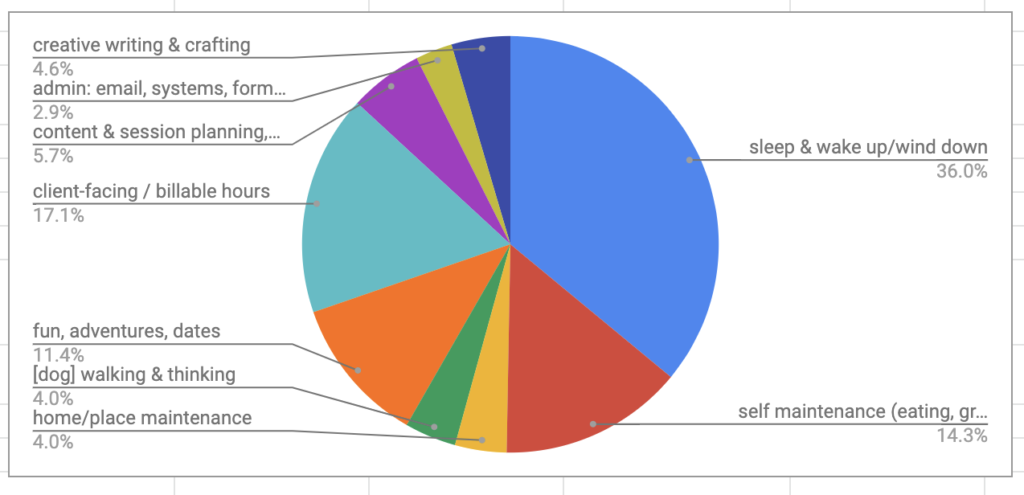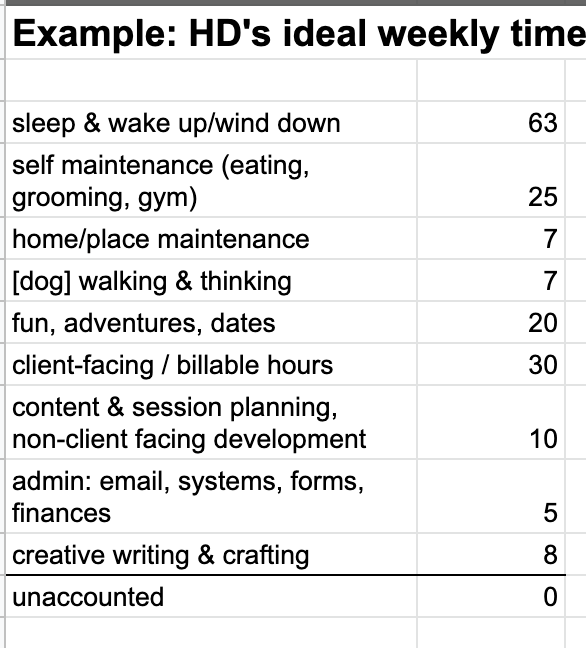In a recent Money Like You Mean To workshop cohort, the topic of time has come up a lot:
“How do I know how much time I spend on working?
How do I plan a work ecosystem that fits my life?
How do I live more instead of work?”
Money Like You Mean To is designed as a series of practical thought experiments: “what happens if I ____?” So I put together a basic Time Accounting Chart to experiment with. Time is a resource, after all.
The Time Accounting prompt is simple: With my 168 weekly hours, how might I account for all the things that make my life good, functional, and liveable? What might need to change in order for me to make this accounting work?

What my ideal time chart looks like is above. When I make a time chart, I have to get real:
Am I forgetting to include something major that I want, like fun or rest or unpaid admin time?
Which of these do I abandon when I get stressed or feel like I have to add work in?
Which of these would make me happier to have more or less of?
What am I doing today that might make it hard to act in accordance with this plan?
Here’s the plan I ended up with:

I make these periodically, not because the chart is cute [it is not] but because it forces me to think: what would I *like* to be doing, and in comparison, what am I *actually* doing with my one wild and precious life?
In the past, I’ve hated how much time goes to work, been frustrated with the amount of time I needed to file under transit [#subwaylife], and had the guilty feelings of someone who puts “down time” on her calendar over and over but never honors it and always squeezes work in on top.
These self-audits are valuable because they interrupt our habits with our intentions. Useful with money, useful with time. A Time Accounting makes me reckon with these feelings, choices, and reality. Time is the great equalizer after all.
If you were to make an accounting of your time, what do you think you’d learn?
Money Like You Mean To workshops run monthly, and are a great way to dive into your finances with a group of other kind and thoughtful folks–they’re sliding scale, and your commitment is only one week.